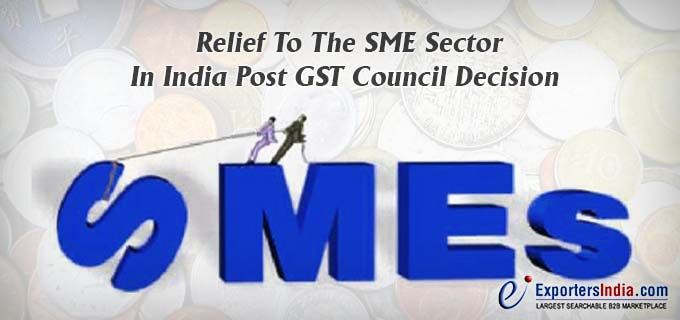
The 22nd GST Council Meet took place on 6th October 2017 and discussed some of the major issues related to the three months old Goods and Services Tax regime in India. This day-long meeting was held in Delhi and the focus was on the impact of this revolutionary tax regime implementation. Led by the Finance Minister of India Mr. Arun Jaitley, the council also had the state finance ministers and other officials of the State and the Center as its members. The discussions majorly revolved around providing relief to the small and medium enterprises in India. There were a number of feedbacks and complaints from the small-scale businesses and traders about the three tax returns that they were asked to file every year.
The reformative GST act was implemented in India on 1st July 2017 and created a stir in the national market. There were various complaints by the traders and exporters of the small sector market regarding the Goods and Services Tax implementation. The SME sector’s burdensome compliances to GST will greatly improve as a result of this GST Council Meet held last week. A special limit for the composition scheme for the SME sector taxpayers has been introduced which would make it easier for the small and medium sector exporters and traders to get relief from the heavy taxes.
Good News For The SME Sector In India
The limit in the composition scheme, which was earlier set at INR 75 lakhs in most of the states, has now been increased to INR 1 crore. This means that the companies with an annual turnover of INR 1 crore can avail the composition scheme contrary to the earlier threshold of INR 75 lakhs. Similarly, the turnover threshold of the SME sector companies falling in the special categories States section has been increased from INR 50 lakhs to INR 75 lakhs. The two Indian states Jammu & Kashmir and Uttarakhand have been declared as an exception to this limit and their threshold has been set at INR 1 crore.
The small-scale traders and exporters with an aggregate annual turnover of INR 1.5 crores would also find some relief post the new reforms in the GST laws. The SME India reaching this threshold would be allowed to file quarterly returns post this meeting. This would be a big relief to the SME sector in India as they would no more be asked to file three monthly tax returns on their income.
The SME sector in India can now have a sigh of relief as there have been a number of changes in the existing GST law pointing in their favor. The turnover threshold has been increased for the small-scale businesses and exporters which would be a big relief to them. They would now have to only file quarterly returns instead of the three returns every month i.e., GSTR 1, GSTR 2 and GSTR 3.
The SMEs, making inter-state taxable supplies, which were earlier forced to register irrespective of their turnover would also benefit from the changes put forth in the council meeting. The threshold has been set at INR 20 lakhs and those having a turnover less than this would not be asked to compulsorily register for their supply of services.
The advance payment of GST on account of supply of goods has also been proven to be quite burdensome of the SMEs India. To ease the compliances, the small-scale businesses will now be allowed to make payment only when the supply of goods is made and not before it. The turnover threshold for this relief facility is set at INR 1.5 crores.
The reverse charge mechanism under GST has also been suspended in the GST Council. Under the reverse charge mechanism, as a registered taxpayer, although being a recipient of a service, was forced to pay the GST on the product or service when availed from unregistered taxpayers like micro or small businesses. This means that registered taxpayers can now make transactions with the unregistered taxpayers without having to pay any type of extra charges.
The GST rates on many things have been reduced and put under the lower slab post this council meeting. This would bring an economic growth in the country and reduce the burden of compliances that the small-scale businesses and enterprises have to face. Remember, the due date for enrolling for the increased threshold of the GST tax regime in India has been finalized at 31st March 2018. Get yourself registered and avail the benefits of this scheme.
Add Comment